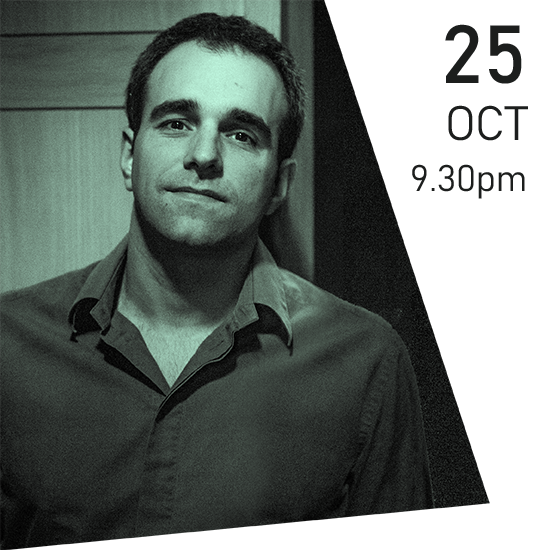 October 25, Friday, 9.30 pm
October 25, Friday, 9.30 pm
Igreja de São Martinho, Funchal
Juan de la Rubia, organ
Coro Gregoriano de Lisboa
Armando Possante, direction
The Gregorian Choir of Lisbon will present, in this concert, several musical moments from the liturgy of Saint Martin, patron saint of this church. The saint, who lived in the fourth century, is one of the most famous in popular devotion.
The concert focuses on recreating the musical structure of the Liturgy of the Mass, going through all the pieces of the Proper, specific to this feast and which accompany the main moments of the ceremony. According to the tradition that began in the medieval period and has continued to this day, these pieces will be preceded or followed by improvisations performed on the organ, in which the organist will use melodies of the Gregorian pieces as thematic material. The following parts of the Mass will be sung: the Introitus (entrance of the celebrant), the Graduale and the Alleluia, in which the choir and the soloist respectively respond to the First Reading and acclaim the reading of the Gospel, and the Offertorium and Communio, that accompany the processions in the corresponding moments (Offertory and Communion). The Sequentia Virgo Plorans, by Notker Balbulus, a monk from the Monastery of St. Gall at the beginning of the tenth century, who was one of the first composers to write this genre of pieces and to assume authorship of his works, will be sung after the Alleluia. We added to these pieces some of the chants from the Ordinary (Kyrie, Sanctus and Agnus Dei), pieces with a much simpler structure and which were intended to be sung by the Schola Cantorum, the specialised choir, together with the entire congregation.
In our concert, the Mass will be framed by the Liturgy of the Hours, as it happens in the liturgical structure of daily monastic life. We will sing excerpts from several of the services, starting with the first, Matins, from which we will perform the first call to prayer, Domine, labia mea aperies, answered by Et os meum annuntiabit laudem tuam (Lord, open my lips / And my mouth will proclaim your praise), which is immediately followed by Psalm 94 (invitatory psalm), which invites the faithful to praise every day of the year. We will also perform pieces sung at the services of Lauds and Vespers, with emphasis on the singing of the Magnificat, the Canticle of Mary, sung daily at Vespers.
We conclude our concert in the same way that the liturgy of the day is concluded, with the antiphon dedicated to Our Lady sung at the end of the service of Compline. Salve Regina is the antiphon sung at this time of year, three more existing for other times. After singing this Marian antiphon, the monks retreat in silence to their cells, confident in Mary’s protection for their souls and in eternal salvation.
— ARMANDO POSSANTE —
Programme
Ad Matutinum
Gregorian Chant
¬ Antiphona ad Invitatorium «Laudemus Deum nostrum» cum Psalmus 94
Ad Missam
Juan de la Rubia (1982)
¬ Improvisation on «Statuit ei Dominus»
Gregorian Chant
¬ Introitus «Statuit ei Dominus»
¬ Kyrie XIV
Juan de la Rubia
¬ Improvisation on Kyrie XIV
Gregorian Chant
¬ Graduale − Ecce sacerdos magnus
Juan de la Rubia
¬ Improvisation on «Alleluia, Beatus vir»
Gregorian Chant
¬ Alleluia «Beatus vir, sanctus Martinus»
Notker Balbulus (840-912)
¬ Sequentia «Virgo plorans»
Juan de la Rubia
¬ Improvisation on «Veritas mea»
Gregorian Chant
¬ Offertorium «Veritas mea»
¬ Sanctus XIV
¬ Agnus Dei XIV
Juan de la Rubia
¬ Improvisation on «Beatus servus»
Gregorian Chant
¬ Communio «Beatus servus»
Ad Vesperas
Gregorian Chant
¬ Antiphona «O beatum Pontificem» cum Magnificat
Ad Completorium
Gregorian Chant
¬ Antiphona «Salve Regina»
Juan de la Rubia
¬ Improvisation on «Salve Regina»
